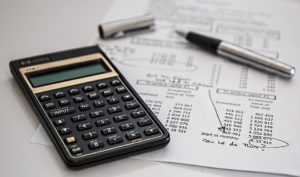How Chapter 13 Bankruptcy Works
Typically after consulting with a bankruptcy attorney you will submit a financial reorganization plan that safeguards assets (your home/car) against repossession or foreclosure and typically requests forgiveness of other debts. Chapter 13 Bankruptcy offers the ability for you to retain assets in which you have equity like your house and car. It is important to know that the debts that you owe creditors do not go away when you file for Chapter 13 Bankruptcy. You still are responsible for your non-dis-chargeable debt, which includes child support, alimony payments, student loan debt, and unpaid taxes.
In order to file for Chapter 13 Bankruptcy you can not have more than $394,725 in unsecured debt. Unsecured debt includes credit card bills or similar personal loans. One positive aspect about filing for Chapter 13 Bankruptcy is that it suspends any current foreclosure processes. This gives the debtor time to meet with a bankruptcy attorney and present a repayment plan.

Chapter 13 Bankruptcy Filing Process
1) Find an accredited bankruptcy attorney who will provide offer a consultation and prepare an estimate about the cost of filing for Chapter 13 bankruptcy. Your attorney will help identify the proper paperwork that you will need to submit. (See Ch. 13 Bankruptcy Forms Here)
2) After paying the mandatory filing fees to the bankruptcy court you will also need to provide
List of creditors and the amount they are owed
The source of your income and the amount you are earning
A list of the property you own
An outline of your monthly living expenses
Tax records, including your most recent Federal Tax Return, and a list of any unpaid taxes
3) After you have filed for Chapter 13 you must then submit a repayment plan. Making these payments on time can greatly increase your ability to get a mortgage during or soon after you discharge date.
Life After Chapter 13 Bankruptcy
After a Chapter 13 repayment plan is approved it is up to the debtor to make every payment on time. If your monthly payments are not being met, then your bankruptcy case will be brought back before a court. During the review of your case the court could decide to liquidate your secured assets, like your home and car.
Sometimes it may feel like their is no hope after you have filed for Chapter 13, however it is important to remember that adhering to this repayment plan shows great dedication towards re-establishing yourself financially. Proving that you are willing to undergo a change in your lifestyle and stick to a structured plan shows a great deal of dedication to the bankruptcy courts. Some debtors have even been able to get a mortgage while in their Chapter 13 bankruptcy plan with the approval of their trustee.

